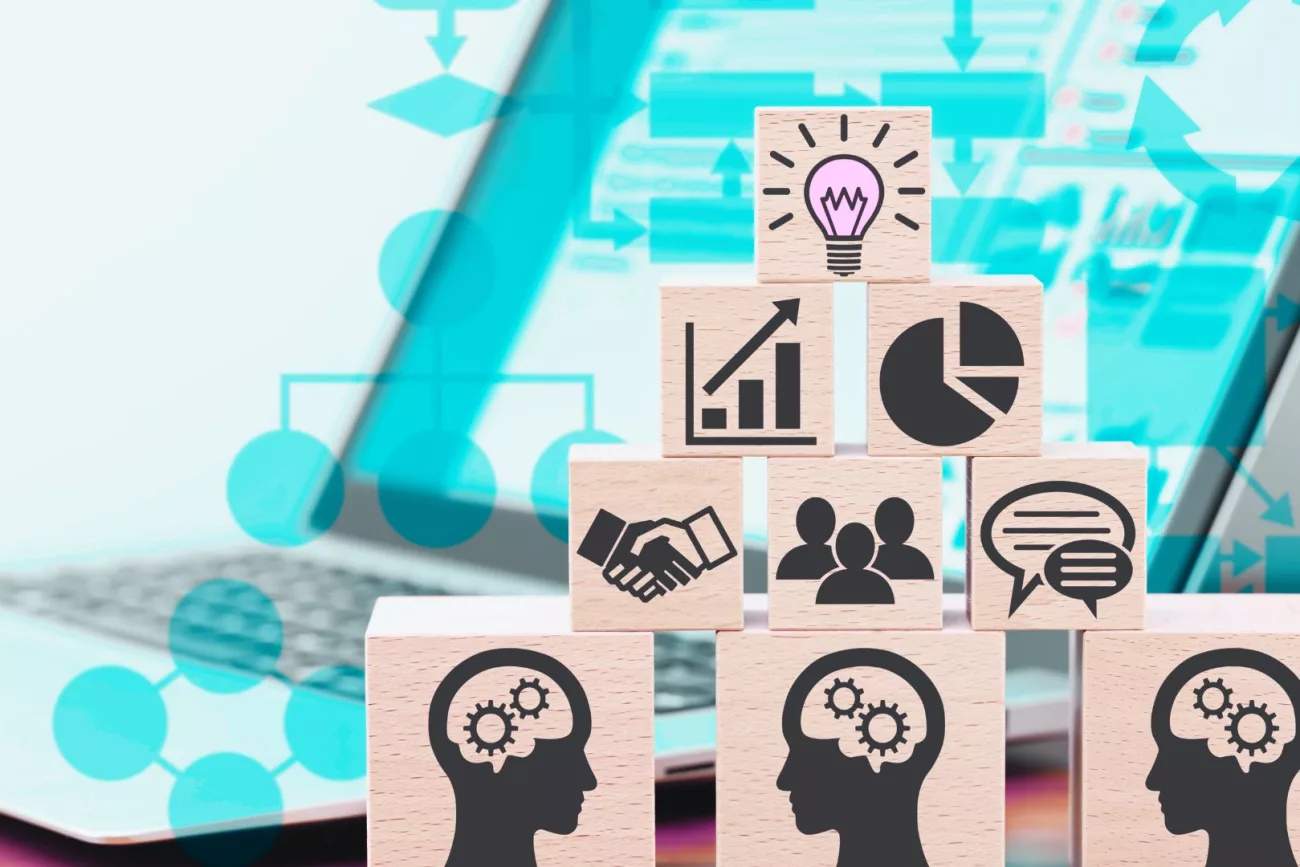
Key Insights
- AI's Growing Role in Law: AI is transforming the legal sector, offering tools for efficient legal research, case management, and predictive analytics, necessitating an understanding of AI for legal professionals.
- IBM's AI Fundamentals Program: A free, ten-hour course providing foundational knowledge in AI, covering essential concepts like machine learning, natural language processing, and data analytics.
- Ethical and Practical Applications: The program emphasizes AI ethics and its practical applications in law, helping legal professionals navigate ethical AI use and understand its practical tools in legal settings.
- Career Enhancement and Future-Proofing: Understanding AI is key for career advancement in the legal sector, with the program aiding in adapting to AI-driven changes and future-proofing legal practices.
Lawyer for Wrongful Death: Your Comprehensive Guide
Mike Ruggles Founder & CEO Instagram Linkedin Follow me on Instagram & LinkedIn for exclusive
AI Bias in Startups: The Unseen Ticking Time Bomb 💣
Key Points: The unseen threat of AI bias in startups and its potential consequences. The
Is AI About to Take Over the Legal World, Again? The Surprising Truth Revealed!
AI Legal Concerns The Legal Apocalypse: AI’s First Wave of Disruption Just a decade ago,
The Intersection of AI and Law
The legal profession stands at a pivotal intersection with Artificial Intelligence (AI), a technological force that is rapidly reshaping industries across the globe. In the legal sector, AI’s impact is both profound and multifaceted, promising to transform how legal work is done, from routine documentation to complex litigation strategies. This evolution presents both opportunities and challenges for legal professionals, necessitating a nuanced understanding of AI technologies and their implications for legal practice.
AI in the legal field is not just about automation; it’s about augmenting the capabilities of legal practitioners. Technologies like machine learning and natural language processing are redefining the scope of legal research, enabling the analysis of vast amounts of legal data at unprecedented speeds. This evolution is empowering lawyers to make more informed decisions, craft more robust legal strategies, and offer more precise counsel. For instance, AI-powered tools can sift through case law, legal precedents, and legislation, identifying relevant information that might have taken days or weeks to compile manually.
However, the integration of AI into law also raises complex questions and challenges. There are concerns about the ethical use of AI, particularly around issues of bias and fairness in AI-driven decision-making. The legal profession, with its strong emphasis on justice and equity, must be vigilant in ensuring that AI tools used in legal contexts do not perpetuate existing biases or create new forms of discrimination. For instance, AI applications in areas such as criminal sentencing and bail decisions have sparked debates on the fairness and transparency of algorithmic decision-making.
IBM’s AI Fundamentals program, offered for free through its SkillsBuild learning portal, presents an invaluable opportunity in this context. While the program is not tailored specifically for legal professionals, its curriculum covers essential AI concepts that are highly relevant to the legal field. For legal practitioners looking to navigate the AI-driven changes in their industry, this program provides foundational knowledge that is crucial.
AI Fundamentals and Legal Applications
Gaining AI Proficiency
In the legal profession, AI proficiency is becoming as crucial as traditional legal expertise. IBM’s AI Fundamentals program, while not specifically designed for legal professionals, offers a comprehensive overview of AI concepts that are increasingly relevant in the legal field. This program covers key AI technologies like machine learning, natural language processing (NLP), and data analytics, which are revolutionizing how legal work is performed.
For example, machine learning algorithms are being used to predict legal outcomes, helping lawyers to strategize more effectively. NLP, on the other hand, is transforming document review and legal research, enabling the analysis of vast amounts of text data, including contracts, case files, and statutes, at a speed and depth impossible for human practitioners. These technologies can significantly reduce the time and cost associated with traditional legal work, allowing lawyers to focus on more strategic aspects of their cases.
Moreover, AI in the legal sector is not just about efficiency; it’s about enhancing the quality of legal services. AI tools can uncover insights and patterns in legal data that might go unnoticed by human researchers, leading to more informed and strategic decision-making. This technology can also assist in risk assessment, compliance monitoring, and due diligence, areas that are critical for legal practice but often resource-intensive.
Practical AI Tools for Legal Practice
Understanding and applying AI in legal practice requires more than just theoretical knowledge. Legal professionals need to be aware of the practical tools and applications of AI in their field. For instance, AI-powered contract analysis tools can quickly review and extract key terms and conditions from contracts, a task that traditionally takes hours or even days. Predictive analytics can forecast litigation outcomes based on historical data, guiding lawyers in making more informed decisions about case strategy.
However, while these tools offer significant advantages, legal professionals must also be mindful of their limitations and the ethical considerations inherent in their use. For example, the accuracy of AI predictions is dependent on the quality and quantity of the data fed into the algorithms. Bias in the data can lead to skewed outcomes, raising ethical and legal concerns.
In this context, IBM’s AI Fundamentals program provides a crucial foundation. By understanding the basics of AI, legal professionals can better assess which tools are appropriate for their needs, understand the potential biases and limitations of AI applications, and make informed decisions about their use in legal contexts.
Fastcase and vLex Merger: The Ultimate Training Data Set for Legal AI?
Fastcas vs VLex Merger Key points: Fastcase and vLex merger creates the ultimate legal AI
Is Your Law Firm Ready for AI’s Next Wave?
Discover the transformative power of Generative AI in the legal sector. Dive into challenges, strategies,
♠️ LinkedIn Ads for Lawyers: The Digital Ace Card
Discover the transformative power of LinkedIn ads for law firms. Dive into data, strategy, and
AI Ethics and Legal Implications
Understanding AI Ethics in Legal Contexts
AI ethics is a crucial aspect of the IBM AI Fundamentals program, holding special significance for legal professionals. The ethical use of AI in law goes beyond mere compliance with regulations; it touches the very core of legal practice, which is grounded in principles of justice and fairness. Legal professionals need to be aware of the ethical considerations that come with deploying AI, such as issues of bias, transparency, and accountability.
Bias in AI, for example, can arise from skewed training data or flawed algorithms, leading to discriminatory outcomes in legal decisions. Legal professionals must understand these risks to prevent and mitigate potential harm. Transparency in AI tools is another critical issue, as it affects the ability of lawyers and clients to understand how decisions are made by AI systems. This is particularly important in contexts where AI is used to support or make legal decisions, such as in predictive policing or bail-setting algorithms.
Accountability is also a key concern, especially in determining who is responsible for the outcomes of AI decisions. Lawyers need to understand the legal implications of using AI in their practice, including liability issues that may arise from AI errors or failures.
Applying AI Ethics in Legal Scenarios
This section would explore how legal professionals can apply AI ethics in practical scenarios. For instance, in the use of AI for legal research, ensuring that the algorithms provide unbiased, comprehensive results is vital. In litigation prediction tools, lawyers must critically assess the tool’s methodology and data sources to ensure fair and equitable outcomes.
Moreover, the role of AI ethics in client counseling and decision-making processes is crucial. Lawyers must be able to advise clients on the ethical implications of using AI tools, such as in contract automation or compliance monitoring. This involves not only understanding the technical aspects of AI but also the broader ethical and societal impacts.
Enhancing Legal Careers with AI Skills
Adapting to AI in the Legal Job Market
The rapid integration of AI in the legal sector is not just transforming practice methodologies; it’s also reshaping the legal job market. For legal professionals, understanding and adapting to AI is no longer a futuristic concept but a current necessity. IBM’s AI Fundamentals program, while general in its approach, provides foundational knowledge that is crucial for legal professionals to understand and leverage AI in their careers.
AI’s influence in law is creating new career paths and altering existing ones. For instance, legal roles are evolving to include responsibilities like overseeing AI implementation, ensuring AI compliance, and managing AI-driven data analysis. Positions such as legal data analysts, AI ethics advisors, and legal technology consultants are emerging, reflecting the need for a blend of legal expertise and AI proficiency.
Moreover, traditional legal roles are also being enhanced by AI. Lawyers with AI knowledge can offer more efficient and insightful services, leveraging AI tools for document review, legal research, and case management. Paralegals and legal assistants equipped with AI skills can handle more complex tasks, increasing their value within their organizations.
AI as a Career Advancement Tool
AI proficiency can significantly enhance a legal professional’s career prospects. By completing IBM’s AI Fundamentals program, legal practitioners demonstrate a commitment to staying at the forefront of technological advancements in their field. This not only makes them more attractive to progressive law firms but also opens doors to opportunities in legal tech companies and in-house legal departments of corporations that are increasingly relying on AI solutions.
The program’s coverage of AI basics helps legal professionals understand the potential and limitations of AI in legal contexts. This knowledge is crucial for effectively integrating AI tools into legal workflows and for providing informed counsel to clients on AI-related matters. For example, lawyers who understand AI can better advise clients on issues like data privacy, intellectual property rights in AI-generated content, and liability in AI-related contracts.
Additionally, AI proficiency can serve as a differentiator in the competitive legal job market. Legal professionals who can confidently navigate AI technologies are well-positioned to take on leadership roles in the evolving legal landscape. They can contribute to strategic decision-making about AI implementation and guide their firms or legal departments in adopting ethical and effective AI practices.
These Law Schools Are Absolutely Dominating Government and Public Interest Jobs in 2023!
Key Points: Top law schools for government and public interest jobs: Yale, Harvard, Stanford, Columbia,
Discover the Secrets of Property Deeds & Dominate Real Estate Transactions!
Mike Ruggles Founder & CEO Instagram Linkedin Follow me on Instagram & LinkedIn for exclusive
Law Firms In the Eye of a Client & Attrition Storm
Explore BigHand’s compelling research on how law firms are navigating the turbulent journey of declining
Future-Proofing Legal Practice with AI
Preparing for AI Integration in Law
The legal sector is on the cusp of a significant transformation driven by AI, and IBM’s AI Fundamentals program serves as a foundational step for legal professionals to prepare for this future. Understanding AI is not just about keeping up with current trends; it’s about future-proofing one’s legal practice. As AI technologies continue to evolve, they will likely play an increasingly central role in various aspects of legal work, from contract generation and compliance monitoring to dispute resolution and legal analytics.
The potential future applications of AI in law are vast and varied. For instance, AI could further enhance predictive analytics, providing even more accurate forecasts of litigation outcomes based on sophisticated data analysis. AI might also revolutionize client services in law firms, offering automated yet personalized advice for initial legal consultations. Additionally, AI could play a significant role in enhancing access to justice, helping to automate and streamline legal processes for those who cannot afford traditional legal services.
Legal professionals who understand the fundamentals of AI can stay ahead of these trends. They will be better equipped to adapt to new tools and technologies as they emerge and can play a key role in shaping the ethical and practical implementation of AI in their firms and the broader legal community.
The Role of Continuous AI Learning in Law
The field of AI is dynamic, with continuous advancements and innovations. For legal professionals, this means that initial training in AI, like IBM’s AI Fundamentals program, is just the beginning. Ongoing education and training in AI will be crucial for staying abreast of new developments and understanding how they can be applied in legal contexts.
Legal professionals should consider engaging in advanced AI courses, attending legal tech conferences, and participating in professional networks focused on AI and law. This ongoing learning can include deep dives into specific AI applications relevant to law, such as natural language processing for contract analysis or machine learning for legal research.
Leveraging AI for Legal Innovation
In conclusion, IBM’s AI Fundamentals program, while not specifically tailored for the legal profession, offers a crucial foundational understanding of AI that can significantly benefit legal practitioners. As AI continues to reshape the legal landscape, understanding its fundamentals, ethical implications, and practical applications will be essential for legal professionals to adapt and thrive. This program represents a vital step in embracing AI in the legal field, encouraging legal professionals to be proactive in their engagement with emerging technologies. By leveraging AI, legal practitioners can enhance their practice, expand their career opportunities, and contribute to the innovative and ethical use of AI in the legal sector.
Share this post
Frequently Asked Questions (FAQs)
Q: What is IBM's AI Fundamentals Program?
A: IBM’s AI Fundamentals Program is a free, online course offered through the SkillsBuild learning portal. It covers essential AI concepts and is designed to be completed in approximately ten hours.
Q: Is the program suitable for legal professionals?
A: While not specifically designed for legal professionals, the program covers AI concepts highly relevant to the legal field, such as machine learning and data analysis, beneficial for legal research and case management.
Q: What are the benefits of this program for lawyers?
A: Lawyers can leverage AI for efficient legal research, predictive analytics in litigation, and enhanced client services. The program helps in understanding AI applications and ethical considerations in law.
Q: Does the program offer any certification?
A: Yes, upon completion of the program, participants receive a digital credential from IBM, which can be added to professional profiles like LinkedIn.
Q: How can I enroll in IBM's AI Fundamentals Program?
A: Enrollment is available through the IBM SkillsBuild learning portal. The program is free and can be accessed online, allowing for flexible learning.















